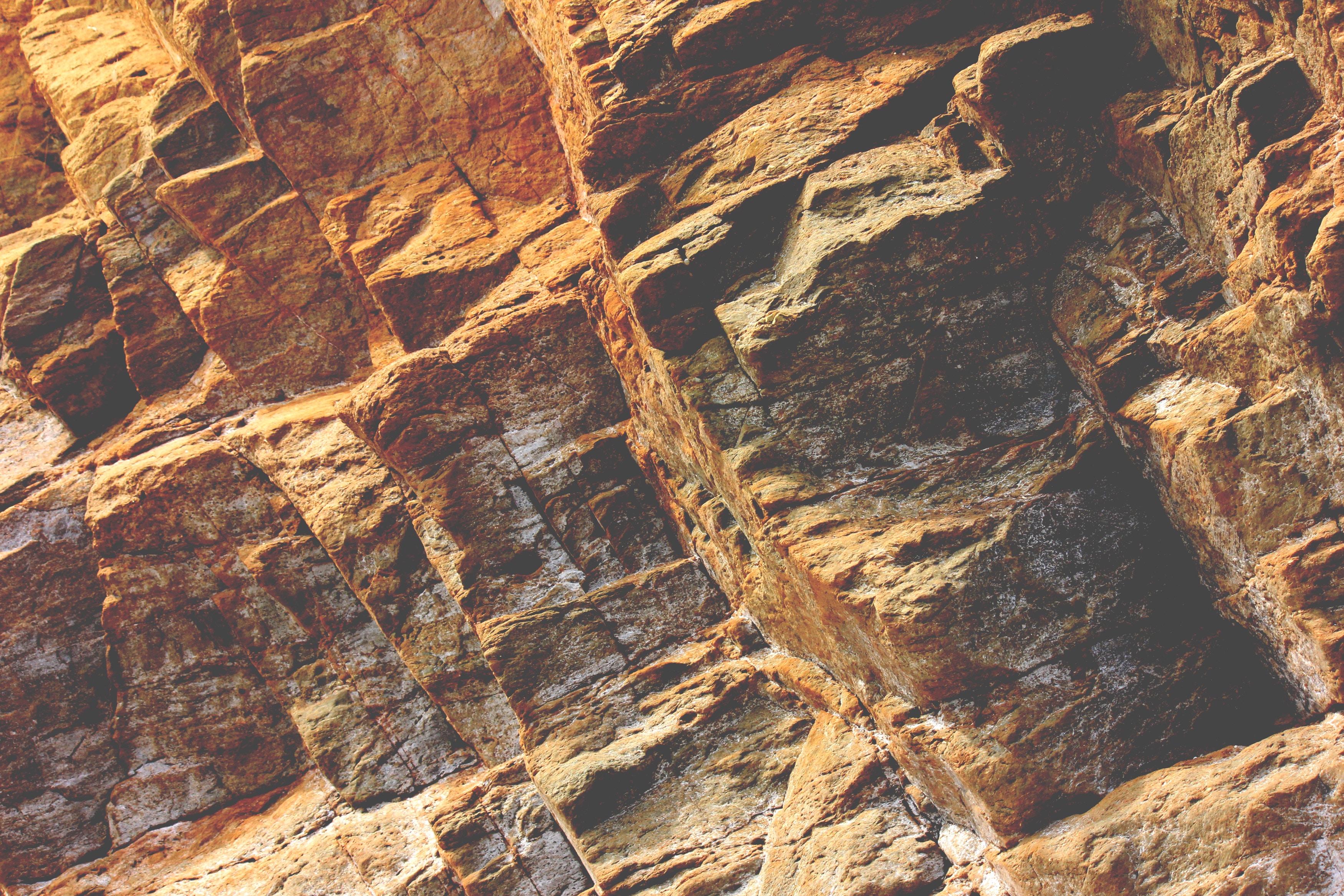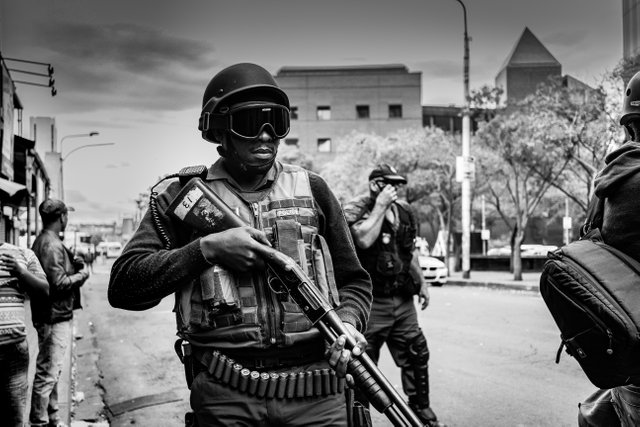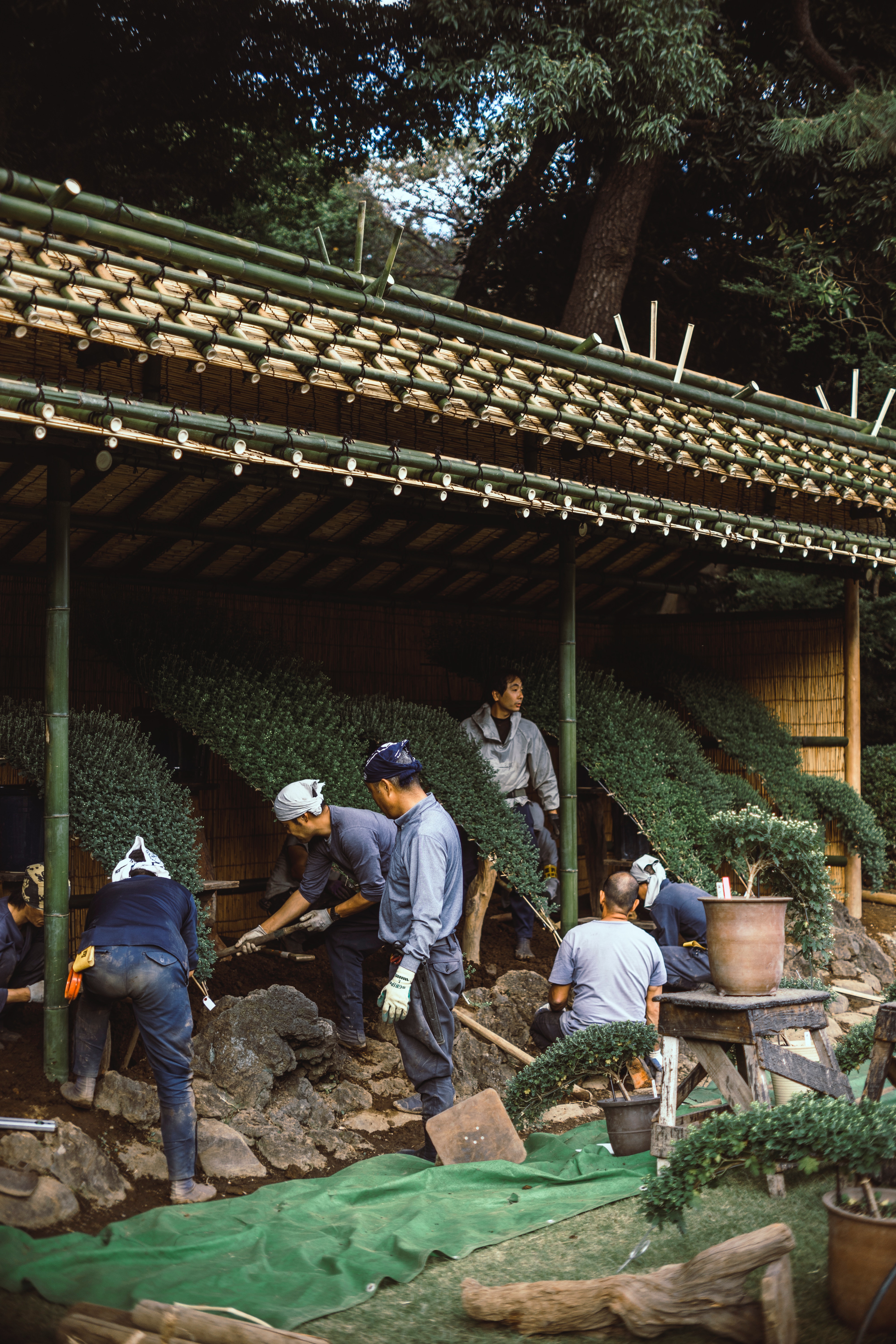MUHTAR NDELELE: 1977
Captain Joseph Wyang glowered and blew his whistle.

Source
‘We haven’t got all day y’all!’ he barked and threw a fist. The prison mates sprang into action and soon the rocky plains of Guda began to vibrate under the firm blows of sledge hammers. All around the grey rocky land broke the blue skyline in craggy peaks. The summer sun beat upon my back relentlessly, forcing beads of sweat down my forehead. Only a few hours ago it had stood over the azure sky a timid, vapid orange glow. Now the ball of fire blazed a brilliant amber, mercilessly roasting everything under its invisible rays. Every Saturday we were forced to work on the rocky plains for long hours. Here you could see another reenactment of the slave trade of the last century. Except for one thing, namely, that this time around it was a case of one black man enslaving another black man. It was like replacing one evil with another evil, one dirty linen with another equally dirty linen.
I pulled up myself and stretched to catch my breath. It was pointless. Everywhere smelled of blasts of swirling grey dust as they blurred from split rocks.

Source
'Hey you!’ came a voice thundering from behind. I turned.
‘What’re you trying to do, journalist?’ the burly soldier bellowed.
‘Catching my breath. That also a crime?’ I retorted and pushed away. From the corner of my eye I could see the slack-jawed, haunted expression on his sunburned dark face. I smiled with satisfaction. I suppose he knew that I knew that they were not allowed to lay a finger on me.
Down the plain Captain Wyang slung his whip and it landed furiously on the exposed back of an old inmate. The old man fell and hit his knee on the rock.
‘Get up, you motherfucker! Faster!’ he barked. Palpable excitement buzzed through the charged air as the mammoth platoon of enraged prison inmates downed their tools in protest. Sensing an eruption of violence was underway, the Captain blew his whistle.
‘You must complete your quota for the day or there will be no yard time for seventy two hours’, he threatened. ‘Everybody get back to work now!’
‘But he don’t deserve that’, I shot forward as they picked up their tools. Captain Wyang ignored. ‘These men have been working since morning and under the clear sun’, I pressed further relentlessly. ‘Don’t you have some freaking conscience left?’
‘Will you now teach me my job, journalist’, he scowled and moved away.
‘Come off it now’, nudged Mbegha as he pulled me away. ‘I know you can’t be touched but hey, you don’t want to make enemies with the Captain’, he warned. ‘In Guda there are no rights, just guts and guns’.
I shrugged in disgust. ‘We can’t be treated like slaves in our own land. That’s so not fair’.
‘Nothing is fair. Nothing. So get used to it’, he said. He raised the hammer and dealt a blow on the rock. The rock split into three perfectly small oblong sizes. I marveled at the machine precision garnered from eleven years. What a wasted asset. Imagine how things could have turned out differently had the country learned to harness the vast resources it had behind the jail bars. Now they lay untapped, unused.
He stopped to wipe the sweat on his brow.
‘Come on, give me a helping hand’, he said and stooped to lift the split rocks onto the waiting wheelbarrow. I wheeled the rocks to the where it was further crushed to pebble sizes by another crew of inmate workers. Their hammers rose and fell with frenzied zeal - mercilessly, never relenting - until the bond between particle and particle came down tumbling. The harmonic thud of swinging hammers provided a perfect beat for Panfritoria shall be free, one of Krewunah’s hit songs of the early 1950s. Their voices rolled over the hills, swelling with hope, frozen hope.

Source
For years we have toiled and labored ye iye
Used and dishonored ye iye
But a strong and firm land I see ye iye
Where greed and blood shall not be ye iye
Where the prison bars shall not be ye iye
Agree with me, sweet brother, agree ye iye
And Panfritoria, land of the brave, land beyond the sea ye iye
Shall be free ye iye
But nearly three decades later, Panfritoria could not be said to be free, gave up the right to be. In any case, she got worst. These men, including myself, were direct hits of the unholy alliance between the ship of the State and the gun. A single shot and the ship, together with all that it carried, will sink.
‘Thank you’, whispered the old inmate in whose behalf I had withstood the Captain. I turned. His voice had a husky drawl. He was as shaggy-faced as Mbegha, but even more – a paly, crinkled brown skin that was dashed in dirty grey hairs. I simply nodded and shook his hands – coarse, stolid and trembling.
‘How long have you been here?’ I asked.
‘Yesterday made it forty-seven’, he said. ‘I was twenty-nine when I came in’, he added.
I felt sorry for him. ‘Too bad. And you’re serving jail time for?’
‘Nothing’, he sighed.
‘Nothing? What’d you mean?’
‘I’m a Prisoner of War. Remember the Jelabra-Panfritoria War of 1926-1939? I was an officer in the Jelabran Army’, he said. I was stunned. ‘In the wee hours of Tuesday the 12th of August, 1930, Panfritorian soldiers launched a large scale attack on our Port Orlando, fifteen miles from Igom. It was a surprised attack. But we fought gallantly, I and my men. In the end, Port Orlando fell. Seventeen of us were taken captives. We were sent to different prisons in Panfritoria. There were three of us here. The other two died three years after’, he said.
My eyes dilated in thick surprise as I listened to this forgotten war hero. Forgotten? Why? I asked him. A brilliant, lifeless smile plastered his face and he shook his head.
‘The war was interrupted by the outbreak of a second World War. I think this distraction left us forgotten and abandoned. It is possible that some of us were returned over that period of time. Maybe I am fated to breath my last here’, he said, caressing the wound on his knee.
‘What about home?’ I asked. ‘Do you still have memories of home, of family? Married?’
‘Yes’, he said. I could see the pain well up now. ‘But I lost that, too’.
I was going to ask him his name when two soldiers approached us. I quickly braced up. If it comes to it, I’d give them a piece of my mind.
‘Come with us now’, they calmly ordered. ‘There is a visitor waiting for you’.
‘Visitor?’ I asked, my suspicions brewing. ‘Since when did I start receiving visitors?’
‘It’s urgent, journalist’, the taller one explained.
‘Don’t keep her waiting.’
‘Who?’
‘Miranda’.
I screwed my eyes in unbelief.
Lovely tale. The use of names and dates made it quite realisitc. I had an issue with the poetry though. What I do is put it in as an interlude, so it does not seem to be there by mistake. If you don't want to do that. You can make it a song being sang by the prisoners or something. My personal opinion though. Still, it's a great story.
Downvoting a post can decrease pending rewards and make it less visible. Common reasons:
Submit
Thank you so much.. I have taken note of this.
Downvoting a post can decrease pending rewards and make it less visible. Common reasons:
Submit
Congratulations @williamshenry! You have completed some achievement on Steemit and have been rewarded with new badge(s) :
Click on any badge to view your own Board of Honor on SteemitBoard.
For more information about SteemitBoard, click here
If you no longer want to receive notifications, reply to this comment with the word
STOPDownvoting a post can decrease pending rewards and make it less visible. Common reasons:
Submit